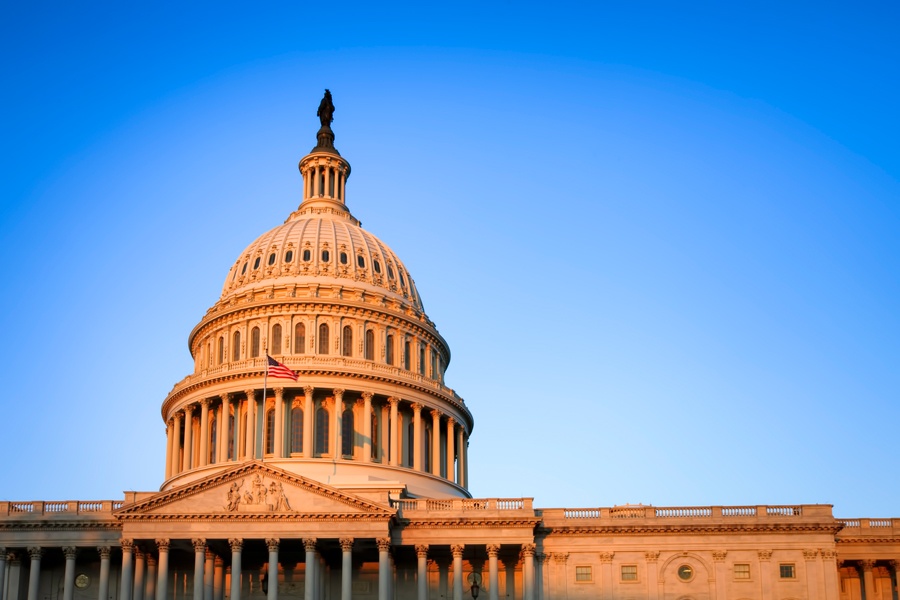

Two members of Congress announced companion bills this week that would create a system to give workers access to portable retirement accounts that would create such a system.
That idea, proposed by Sen. Mark Warner, D-Va., and Rep. Jim Himes, D-Conn., has been in the works for several years. In 2018, the two published a paper proposing the accounts, which would be designed to stay with workers as they move from job to job. The accounts would not replace 401(k)s or IRAs, they noted, but would add to the current system of retirement savings options.
The House bill, which was introduced Wednesday, is entitled the Portable Retirement Investment Account Act. A Senate version of the bill had not been posted to Congress’s site as of Thursday.
The measures would require everyone in the country to receive a portable account at the same time they are given a Social Security number. The accounts would be overseen by an independent board and managed by private-sector financial institutions. Account owners with the "basic" option would be invested in target-date funds, although other investments would be available, according to the text of the legislation.
“After the creation of the initial account, account holders will have the option to choose investment options from a qualified financial institution,” an announcement from the congressmen read. “Employers can contribute to their employee’s PRIA just like legacy plans like 401(k)s, but employees who separate from their employer will still have the ability to contribute to the same PRIA plan as before.”
The idea would not require anyone to relinquish their existing retirement accounts and is intended to increase access to retirement savings, especially as more people move from traditional employment to the gig economy, the legislators noted.
It would also help workers keep track of their retirement savings, one way to address the issue of “lost accounts” that often affect those with small balances from plans sponsored by former employers.
When an account surpasses $15,000 and the owner was at least 18 years old, the program would notify them that they would be eligible to transfer the assets to an IRA, according to the bill.
“PRIA is going to bring people in from the cold,” Himes said in the statement. “Instead of seeing themselves fall further and further behind in their retirement savings, millions of Americans in non-traditional employment arrangements will have another tool in their retirement toolbox.”
The idea is separate from several other proposed changes in the current Congress to the U.S. retirement savings system, including a federal automatic IRA and various provisions known as “SECURE 2.0.”
“Americans are more likely to change jobs and be engaged in non-traditional forms of work than they were a generation ago, but our policies haven’t kept up with these shifts,” Warner said in the announcement. “As more and more Americans hold multiple jobs across a career, a year, and even a day, PRIA will provide more workers with access to flexible, portable benefits such as retirement savings that will carry with them from employer to employer and gig to gig.”
According to a paper published this week by the Brookings Institution, the development of single accounts for workers, as well as steps to make retirement accounts more portable, are ways of confronting the growing issue of small accounts, which are prone to be lost or cashed out early.
That idea has not been lost on plan providers, a handful of which have recently announced that they will be offering an automatic portability option through Retirement Clearinghouse.

While industry statistics pointing to a succession crisis can cause alarm, advisor-owners should be free to consider a middle path between staying solo and catching the surging wave of M&A.

New joint research by T. Rowe Price, MIT, and Stanford University finds more diverse asset allocations among older participants.

With its asset pipeline bursting past $13 billion, Farther is looking to build more momentum with three new managing directors.

A Department of Labor proposal to scrap a regulatory provision under ERISA could create uncertainty for fiduciaries, the trade association argues.

"We continue to feel confident about our ability to capture 90%," LPL CEO Rich Steinmeier told analysts during the firm's 2nd quarter earnings call.
Orion's Tom Wilson on delivering coordinated, high-touch service in a world where returns alone no longer set you apart.
Barely a decade old, registered index-linked annuities have quickly surged in popularity, thanks to their unique blend of protection and growth potential—an appealing option for investors looking to chart a steadier course through today's choppy market waters, says Myles Lambert, Brighthouse Financial.
